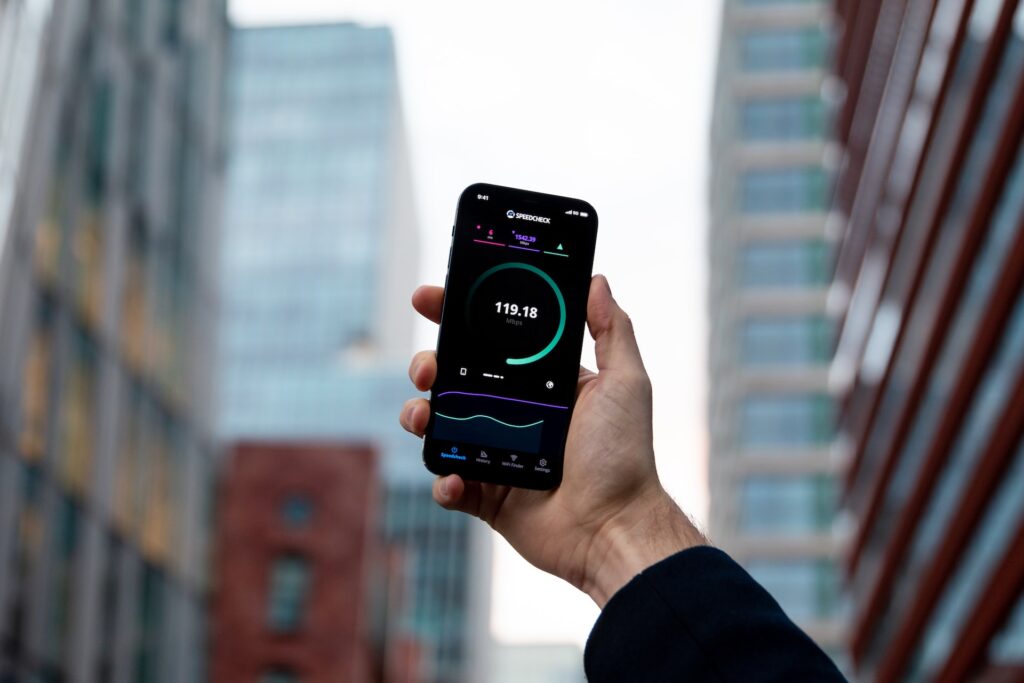Choosing the right internet speed can be a daunting task, especially with so many options available from internet service providers (ISPs) these days. Your internet speed determines how fast you can download or upload data, stream videos, or play online games. But which speed is right for you? In this article, we’ll explore the various internet speed options available and help you decide which one suits your needs.
- Check Your Internet Usage
Before you choose an internet speed, it’s important to consider your internet usage. Are you a heavy internet user who streams videos, plays online games, and downloads large files frequently? Or are you a light user who only checks emails and browses the web occasionally?
If you’re a heavy user, you’ll need a higher internet speed to support your usage. For light users, a lower speed may suffice. However, keep in mind that your internet speed may affect other factors like the number of devices connected to your network and the type of content you’re streaming or downloading.
- Determine the Minimum Speed Requirements
Next, you need to consider the minimum speed requirements for your internet activities. For example, if you’re streaming videos in high definition, you’ll need at least 5 Mbps (megabits per second) of download speed. For online gaming, you’ll need a minimum of 3 Mbps download speed and 1 Mbps upload speed.
Here are some minimum speed requirements for common internet activities:
- Email and browsing: 1-3 Mbps download speed
- Streaming music: 1-2 Mbps download speed
- Streaming SD videos: 3-5 Mbps download speed
- Streaming HD videos: 5-10 Mbps download speed
- Streaming 4K videos: 25 Mbps download speed
- Online gaming: 3 Mbps download speed and 1 Mbps upload speed
- Video conferencing: 1-4 Mbps download speed and 1-2 Mbps upload speed
Keep in mind that these are minimum speed requirements and that you may need higher speeds to ensure a smooth internet experience.
- Consider the Number of Devices
The number of devices connected to your network can also impact your internet speed. If you have multiple devices connected to your network simultaneously, you’ll need a higher internet speed to support the traffic.
For example, if you have two people streaming videos on two different devices, you’ll need a minimum of 10 Mbps download speed to ensure a smooth experience. If you have four people streaming videos on four different devices, you’ll need a minimum of 20 Mbps download speed.
- Look at Your Budget
Your internet speed is often tied to the price you pay for your internet plan. Generally, the higher the speed, the more expensive the plan. You’ll need to consider your budget and balance it against your internet needs.
It’s important to note that you shouldn’t sacrifice speed for cost if it means compromising your internet experience. A slow internet speed can lead to frustration and wasted time, especially if you’re a heavy user. If you need a higher speed than you can afford, consider a lower-tier plan from a different ISP or try negotiating with your current ISP for a better deal.
- Choose a Reliable ISP
Lastly, it’s important to choose a reliable ISP that can provide the speed you need consistently. You don’t want to pay for a high-speed plan and then experience slow internet speeds due to poor network connectivity.
Research ISPs in your area and read reviews from other customers to ensure that you choose an ISP that can provide the speed and reliability you need.
In conclusion, choosing the right internet speed depends on your usage, minimum speed requirements, number of devices, budget, and ISP reliability. Consider all these factors before choosing an internet speed to ensure that you have the best








